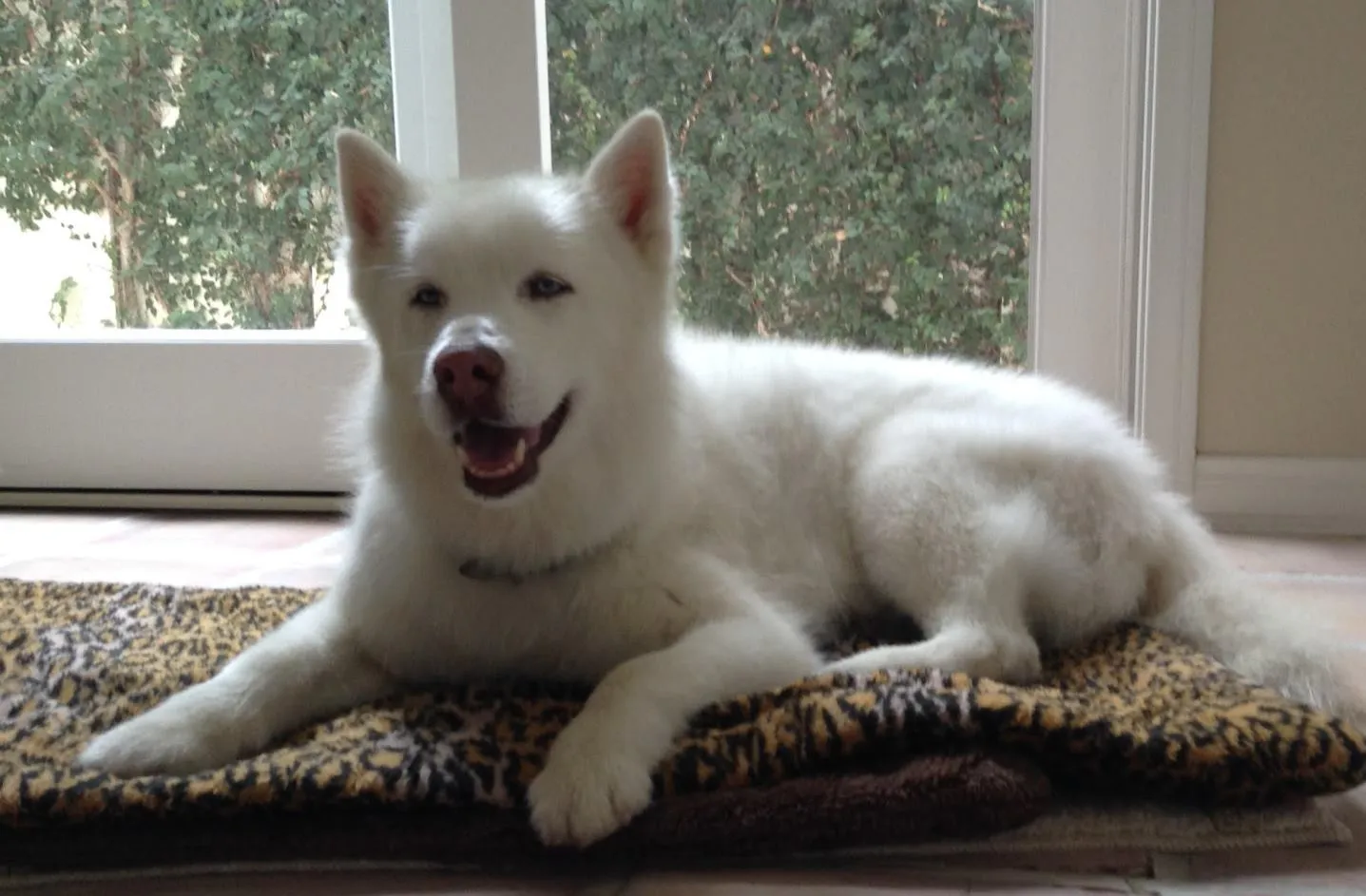Caring for a dog experiencing cognitive decline can be challenging, but understanding canine cognitive dysfunction (CCD) and exploring effective management strategies is key to enhancing their quality of life. Often referred to as “dog dementia,” CCD is a progressive neurodegenerative disorder affecting older dogs, leading to changes in memory, learning, perception, and awareness. While there’s no complete cure, a multi-faceted approach, including dietary adjustments, lifestyle modifications, and especially the Best Supplement For Dog Dementia, can significantly alleviate symptoms and slow the progression of cognitive impairment. This guide will delve into these essential components, providing practical insights for concerned pet owners.
Understanding Canine Cognitive Dysfunction (CCD)
Canine Cognitive Dysfunction Syndrome (CCDS) manifests in various ways, often subtly at first. Common signs include disorientation, changes in social interaction, altered sleep-wake cycles, house-soiling accidents, and reduced activity levels or increased anxiety. These symptoms can be distressing for both the dog and their owner, highlighting the need for early recognition and intervention. While the exact cause is complex, it involves age-related changes in the brain, including oxidative stress, inflammation, and amyloid plaque buildup.
A Holistic Approach to Managing Dog Dementia
Managing CCD involves a combination of therapies aimed at slowing progression and improving daily comfort. A holistic strategy often includes:
- Medications: Veterinarians may prescribe specific medications to address symptoms like anxiety, restlessness, or sleep disturbances associated with dog dementia.
- Exercise & Mental Stimulation: Keeping your dog’s mind active and engaged is crucial. This can involve interactive puzzle toys, regular physical exercise (such as walks in the evening to promote better sleep), and learning new, simple commands or tricks adapted to their cognitive abilities.
- Routine and Structure: A consistent daily routine provides security and reduces anxiety in dogs with CCDS. Predictable feeding times, frequent potty breaks, and regular activity can help maintain a sense of stability.
- Physical Therapy: Techniques like therapeutic exercises, massage, and hydrotherapy can improve mobility and joint function, which indirectly supports cognitive health by enhancing blood flow to the brain and overall well-being.
- Diet Changes: Specific dietary modifications can support brain health, reduce inflammation, and manage oxidative stress.
- Supplements: Targeted nutritional supplements are a cornerstone of managing canine cognitive decline, providing essential nutrients that support brain function and protect against further damage. For instance, incorporating specific compounds can help improve neural communication and reduce oxidative stress, contributing to better cognitive outcomes.
Nutritional Support: The Best Diet for Dogs with Dementia
A high-quality diet is fundamental for dogs with canine senility, focusing on supporting brain health, maintaining overall wellness, and combating inflammation. Here are key dietary considerations:
- High-Quality Protein: Essential for muscle mass and overall health. Opt for minimally-processed, lean protein sources like baked fish or novel protein diets.
- Omega-3 Fatty Acids: Foods rich in omega-3s, such as salmon, sardines, or flaxseed oil, possess anti-inflammatory properties crucial for brain health and may slow the progression of dementia. These healthy fats also contribute to the overall well-being of your dog, including joint health and a shiny coat.
- Antioxidant-Rich Foods: Incorporate fruits (blueberries, strawberries) and vegetables (spinach, carrots, broccoli, orange/yellow peppers). Antioxidants protect the brain from oxidative stress, a key factor in cognitive decline. Frozen blueberries or green beans can make excellent healthy treats.
- Complex Carbohydrates: Choose complex carbs like sweet potatoes or pumpkin for sustained energy and blood sugar regulation. They are also rich in fiber, vitamins, and minerals.
- Moderate Fat Content: Ensure an appropriate amount of healthy fats, found in sources like fish oil or olive oil. Fats are vital for brain health and cognitive function but should be provided in moderation to prevent weight gain. Raw frozen diets often include olive oil. Beyond dietary intake, exploring beneficial oils for your dog’s skin can also contribute to their overall health and comfort, as many healthy fats support both internal and external well-being.
- Avoid Food Allergens: If your dog has allergies, eliminate potential allergens (e.g., chicken, beef, grains, dairy) to prevent inflammation and discomfort, which can exacerbate CCD symptoms.
- Small, Frequent Meals: Offering smaller, more frequent meals throughout the day can prevent digestive issues and stabilize blood sugar levels, contributing to better cognitive function.
Always consult your veterinarian before making significant diet changes, especially for pets with underlying conditions like liver or kidney disease that may require specialized diets.
Key Supplements for Canine Cognitive Health
Supplements are often considered the best supplement for dog dementia because they can directly target brain health, reduce oxidative stress, and support cognitive function. Here are some commonly recommended supplements and their benefits:
Omega-3 Fatty Acids (Fish Oil)
Omega-3s, particularly EPA and DHA found in fish oil, are vital for brain health. They have powerful anti-inflammatory properties that can reduce brain inflammation and support neurotransmitter function, potentially slowing the progression of dementia.
Antioxidants
Antioxidants combat oxidative stress, which damages brain cells.
- Resveratrol: A potent antioxidant found in grapes, it helps protect brain cells from free radical damage and may improve cerebral blood flow.
- Coenzyme Q10 (CoQ10): Supports mitochondrial function and cellular energy production. It helps protect brain cells from oxidative damage and can slow the progression of dementia.
Phospholipid Compounds
These compounds are crucial for the structural integrity of cell membranes in the brain, essential for optimal brain function and neurotransmitter signaling.
- Citicoline, Glycerophosphocholine, and Phosphatidylserine: These phospholipids may help improve cognitive function, memory, and learning abilities in aging dogs.
Acetyl-L-Carnitine
An amino acid derivative that supports mitochondrial function and energy production within cells. It has been shown to improve cognitive function and reduce the progression of dementia by enhancing cellular metabolism in the brain.
SAMe (S-Adenosyl methionine)
SAMe plays a role in neurotransmitter synthesis and has been studied for its potential to improve cognitive function and mood in dogs with dementia. It can help maintain the health of brain cells and support overall neurological function.
Curcumin
The active compound in turmeric, curcumin, is known for its anti-inflammatory and antioxidant properties. It may help dogs with dementia by reducing brain inflammation, protecting against oxidative stress, and promoting the growth of new brain cells.
Hemp Extract
Hemp extract oil has gained popularity for its potential to alleviate dementia symptoms in dogs. It can reduce inflammation, calm anxiety, and improve overall cognitive function. Its anxiolytic effects are particularly helpful for behavioral issues associated with CCD.
Medicinal Mushrooms
Certain medicinal mushrooms offer neuroprotective benefits.
- Reishi: Known for its anti-inflammatory and antioxidant properties, Reishi may reduce inflammation and oxidative stress in the brain. It can also stimulate nerve growth factor production, potentially improving cognitive function.
Green Tea Extract
Rich in antioxidants, particularly EGCG, green tea extract helps combat oxidative stress and inflammation in the brain. These compounds support cognitive function and may slow the progression of cognitive decline linked to aging.
Ginkgo Biloba
This herbal supplement is believed to improve cognitive function by enhancing blood flow to the brain and protecting neural tissues. It has a long history of use in traditional medicine for supporting brain health in aging individuals.
Real Stories: Hope and Help for Dogs with Dementia
Many owners have found success in managing their dog’s dementia with a combination of care strategies and targeted supplements.
Whitey, a beautiful poodle mix who suffered from neglect, was adopted at the end of his life with neurological symptoms and signs of canine cognitive dysfunction. His new owners noted accidents, pacing, and unresponsiveness. After trying specific supplements like Dog Brain Booster and Purrfect Pet CoQ10, Whitey showed significant improvement in energy and engagement. The Dog Brain Booster notably reduced his stumbling, and the supplements helped stop nighttime accidents for a considerable period. For calming at night, Happy Paws provided quick relief.
 Senior dog Whitey, a beautiful white poodle mix, looking alert and engaged, showcasing the benefits of dementia supplements and care.
Senior dog Whitey, a beautiful white poodle mix, looking alert and engaged, showcasing the benefits of dementia supplements and care.
Carson, a 14-year-old Jindo Chow, experienced extreme dementia, including pacing all night, barking at nothing, and other upsetting behaviors. Traditional medication caused severe side effects. His owner found hope with Dog Brain Booster, which dramatically improved his condition. Carson’s dementia traits disappeared, he slept through the night, and his unnecessary barking ceased.
 Carson, a senior Jindo Chow dog, looking calm and content, illustrating improved well-being after receiving supplements for dementia.
Carson, a senior Jindo Chow dog, looking calm and content, illustrating improved well-being after receiving supplements for dementia.
Sophie, a 14-year-old Boxer, developed confusion, inexplicable barking, and a “drunk” appearance, diagnosed as Cognitive Dysfunction Syndrome (CDS) and vestibular disease. Within days of starting Dog Brain Booster for healthy brain function, Sophie regained her playful demeanor, and her barking stopped, allowing her to enjoy her senior years.
These testimonials underscore the profound impact that the right supplements and dedicated care can have on dogs living with dementia.
Lifestyle Tips for Supporting Your Dog with Dementia
Beyond diet and supplements, simple lifestyle adjustments can make a significant difference in your dog’s comfort and well-being:
- Stick to a routine: Consistency in daily activities minimizes confusion and anxiety.
- Keep your dog in safe and familiar areas: Restricting access to confusing or dangerous spaces helps prevent accidents and stress.
- Avoid stressful situations: Loud noises, new environments, or too many visitors can overwhelm a dog with CCD.
- Go for walks in the evening: This can help regulate their sleep cycle, promoting better rest at night.
- Use puzzle toys for mental stimulation: These can keep their minds engaged and active in a low-stress manner.
- Have patience: Remember that your dog is not intentionally misbehaving; their actions are a symptom of their condition. Patience, understanding, and love are the most important gifts you can give them.
Conclusion
Managing canine cognitive dysfunction requires a compassionate and informed approach. While there is no definitive cure, a holistic strategy integrating supportive dietary changes, a structured and stimulating environment, and the best supplement for dog dementia can significantly improve your dog’s symptoms and enhance their overall quality of life. Always consult with your veterinarian or a certified pet nutritionist to create a personalized care plan tailored to your dog’s specific needs and health conditions. By understanding CCD and implementing these strategies, you can help your beloved companion navigate their senior years with comfort and dignity.
